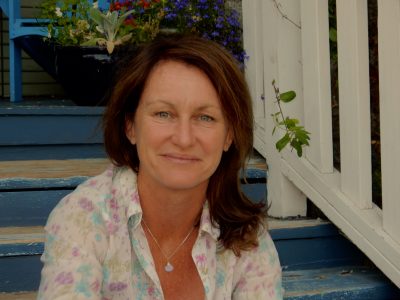“Research doesn’t just belong to the university.” – Maeve Lydon, May 31st
The Aligning Institutions for Community Impact (AICI) Working Group is pleased to welcome Maeve Lydon as its Community Co-lead. Located in Victoria, BC, Maeve brings a wealth of experience from her recent work with Community-Based Research Canada (CBRC) and her history working in the community and international development sectors.

The Aligning Institutions for Community Impact Working Group welcomes Maeve Lydon as its Community Co-lead.
Earlier this month, AICI Research Assistant, Katalin Koller, had the pleasure of interviewing Maeve about her passion for community-campus engagement (CCE):
What does “Community First” in the context of community-campus engagement mean to you? Why is it important?
I think that it first implies a de-centred approach to the university – that we want to be driven by the needs, assets, and visions of the broader society. Community First means that we take a broad public domain approach to looking at engagement, not artificially, but with an interdisciplinary perspective. Who are the communities we are referring to and what are their diverse priorities? The university community is an important asset for growing and supporting the common good and well-being of greater society.
Looking back on the lessons you have learned from your most impactful experiences, what insights do you hope to contribute to the Aligning Institutions work?
First, I believe that a multi-scalar approach to Community First works best. When we envision impact, we need to consider activities at the everyday micro level, the meso program level, and the macro structural level. At the micro level, we need to co-design projects. At the meso level, we can support capacity building, co-training and the co-creation of knowledge infrastructure. At the institutional change level, we need to work together toward structural changes that enable meaningful co-governance.
Second, we need to spend more time celebrating off-campus champions and incentivizing Community First researchers. We need to affirm the value of community-engaged scholarship by working with funders and businesses to create new pathways for funding and creativity, linking the social innovation lens to the engagement framework.
You have an array of experience across a variety of disciplines, in Canada and overseas. What do you see as Canada’s strengths and areas for improvement relative to other countries’ efforts to promote community-campus engagement?
Canada is uniquely placed in the world to make a difference. Our greatest strengths are that we work collaboratively and that our CCE movement has been quite humble and open to best practices. Our overseas partners are inspired by: our intercultural framing of the public domain, our inclusion of Indigenous knowledges, and our respect for multiple knowledges. We are open to ideas and extremely creative; we are innovators. CFICE in particular is seen as setting the national agenda for community-campus collaboration and culture change.
Broadly speaking, when we think critically about mainstream efforts to enable praxis through community-campus engagement, what do we need to consider?
Thus far, CFICE has provided some of the broader scaffolding: we need to listen, to plan, to ensure representation that reflects broader society. We need to enable a creative space for dialogue while continually asking ourselves how community – corporate, government, students, activists, CBOs, Indigenous Peoples – are actually involved in the conversation. Most of all, we all need to break out of our comfort zones and look at where the energy is at.
On behalf of the CFICE team, welcome aboard Maeve!